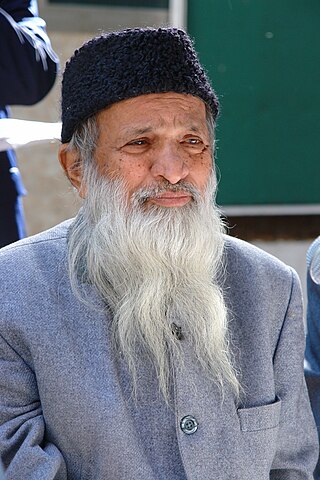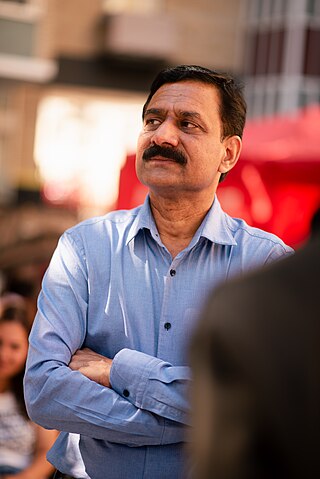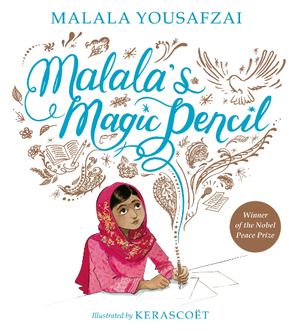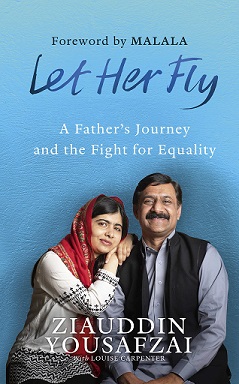Related Research Articles

An orphanage is a residential institution, total institution or group home, devoted to the care of orphans and children who, for various reasons, cannot be cared for by their biological families. The parents may be deceased, absent, or abusive. There may be substance abuse or mental illness in the biological home, or the parent may simply be unwilling to care for the child. The legal responsibility for the support of abandoned children differs from country to country, and within countries. Government-run orphanages have been phased out in most developed countries during the latter half of the 20th century but continue to operate in many other regions internationally. It is now generally accepted that orphanages are detrimental to the emotional wellbeing of children, and government support goes instead towards supporting the family unit.

Abdul Sattar EdhiNI LPP was a Pakistani humanitarian, philanthropist and ascetic who founded the Edhi Foundation, which runs the world's largest ambulance network, along with homeless shelters, animal shelters, rehabilitation centres, and orphanages across Pakistan.

Swat District, also known as the Swat Valley, is a district in the Malakand Division of Khyber Pakhtunkhwa, Pakistan. Known for its stunning natural beauty, the district is a popular tourist destination. With a population of 2,687,384 per the 2023 national census, Swat is the 15th-largest district of Khyber Pakhtunkhwa.

GoodWeave International is a network of non-profit organizations dedicated to ending illegal child labour in the rug making industry. Founded in 1994 by children's rights activist and Nobel Peace Prize winner Kailash Satyarthi, it provides a certification program that allows companies that pass inspection to attach a logo certifying that their product is made without child labour. It is an example of a product-oriented multistakeholder governance group.

Mingora is a city in the Swat District of Khyber Pakhtunkhwa, Pakistan. Located on the Swat River, it is the 3rd largest city in Khyber Pakhtunkhwa and the 26th largest in Pakistan. Mingora is the largest city and the epicenter of social, cultural, and economic activities in Malakand Division, and also the largest in the northern part of Khyber Pakhtunkhwa.

Kailash Satyarthi is an Indian social reformer who campaigned against child labor in India and advocated the universal right to education.
UNICEF, originally the United Nations International Children's Emergency Fund, officially United Nations Children's Fund since 1953, is an agency of the United Nations responsible for providing humanitarian and developmental aid to children worldwide. The organization is one of the most widely known and visible social welfare entities globally, operating in 192 countries and territories. UNICEF's activities include providing immunizations and disease prevention, administering treatment for children and mothers with HIV, enhancing childhood and maternal nutrition, improving sanitation, promoting education, and providing emergency relief in response to disasters.

Malala Yousafzai is a Pakistani female education activist, film and television producer, and the 2014 Nobel Peace Prize laureate at the age of 17. She is the youngest Nobel Prize laureate in history, the second Pakistani and the only Pashtun to receive a Nobel Prize. Yousafzai is a human rights advocate for the education of women and children in her native homeland, Swat, where the Pakistani Taliban had at times banned girls from attending school. Her advocacy has grown into an international movement, and according to former Prime Minister Shahid Khaqan Abbasi, she has become Pakistan's "most prominent citizen."

Ziauddin Yousafzai is a Pakistani educational entrepreneur and activist best known as the father of Nobel laureate Malala Yousafzai, who protested against the Tehrik-i-Taliban Pakistan opposition to the education rights of girls, especially for Pakistani girls.

The 2014 Nobel Peace Prize was shared, in two equal parts, between Kailash Satyarthi and Malala Yousafzai "for their struggle against the suppression of children and young people and for the right of all children to education". Satyarthi is from India, the seventh person from his country to win a Nobel Prize and the second to win the Peace Prize after Mother Teresa, while Yousafzai is a Muslim from Pakistan, the second Nobel Prize winner from her country after Abdus Salam, the forty-seventh woman to win the Nobel Prize, and at the age of 17 years, the youngest winner of a Nobel Prize in any field.
Neelam Ibrar Chattan is a Pakistani campaigner for human rights. She won the European Union - Paiman Trust Gold Award for her work. She educates for children's rights and human rights in the war-torn Swat Valley, Pakistan. She shares her hometown with Malala Yousafzai.

Muzoon Almellehan is a Syrian activist and refugee resettled in the United Kingdom. She is known for her work to keep Syrian girls in school, and has been referred to as the "Malala of Syria". In June 2017, she became the youngest GoodWill Ambassador of UNICEF.

Malala's Magic Pencil is a 2017 picture book authored by Malala Yousafzai and illustrated by Kerascoët. The book was published by Little, Brown and Company in the U.S., and Puffin Books in the U.K., with Farrin Jacobs as editor. It shows Yousafzai growing up in Swat, Pakistan, and wishing for a magic pencil to solve her problems; she learns that she is able to make change, such as advancing rights to female education, without one. The book has received very positive reviews, praising both Yousafzai's writing and Kerascoët's illustrations. The book appears on several lists of best children's books of 2017.

We Are Displaced: My Journey and Stories from Refugee Girls Around the World is a 2019 book by Malala Yousafzai. The book was published by Little, Brown and Company in the US and Weidenfeld & Nicolson in the UK. The book follows Yousafzai's own experience being displaced in Pakistan and later forced to move to England, and tells stories from nine other displaced people around the world. The book received positive critical reception and reached the top 10 in The New York Times' bestseller list under the "Young Adult Hardcover" section.

Gul Makai is a 2020 Indian biographical drama film directed by H.E. Amjad Khan, written by Bhaswati Chakrabarty, and produced by Techno Films. The film is based on the life of Malala Yousafzai, a Pakistani activist for female education and the youngest ever Nobel Prize laureate.
Malala Fund is an international, non-profit organization that advocates for girls' education. It was co-founded by Malala Yousafzai, the Pakistani activist for female education and the youngest Nobel Prize laureate, and her father, Ziauddin. The stated goal of the organization is to ensure 12 years of free, safe and quality education for every girl. As of July 2020, the organization has 48 staff and supports 58 advocates working across Afghanistan, Brazil, Ethiopia, India, Lebanon, Nigeria, Pakistan and Turkey.
Swat Relief Initiative is an American federally registered 501(c)(3) charitable organization which raises funds for and provides direct volunteer assistance to schools and clinics in Swat, Pakistan. The foundation is based in Princeton, New Jersey, and was founded by Pakistani American Zebunisa Jilani in 2010. Zebunisa Jilani is the granddaughter of His Highness Miangul Jahan Zeb who ruled the Khyber Pakhtunkhwa districts of Buner, Shangla and Swat, Pakistan, comprising Swat as Wali Jahan Zeb of Swat from December 1949 until September 1969. During the Wali's administration he was personally involved in the establishment of hundreds of schools and clinics.

Let Her Fly: A Father's Journey and the Fight for Equality is a 2018 autobiography by Ziauddin Yousafzai, the father of the Pakistani activist for female education Malala Yousafzai. It details the oppression he saw women face in Pakistan, his family life both before and after his daughter Malala was shot by the Taliban and his attitudes to being a brother, a husband and a father.
References
- 1 2 3 Shandana Aurangzeb, Durrani. "Child Assembly ensures a voice for youth affected by crises in Swat, Pakistan". UNICEF. Retrieved 2 February 2011.
- ↑ Khaliq, Fazal. "Peace brings little hope to Swat orphans" . Retrieved 17 November 2010.
- ↑ "Child Assembly ensures a voice for youth affected by crises in Swat, Pakistan". YouTube .
- ↑ "District Child Assembly Swat 2009". YouTube .
- 1 2 globe, newswire. "News release: AkzoNobel and KidsRights support four educational projects as part of the International Children's Peace Prize". globenewswire.com. Retrieved 25 November 2015.
- 1 2 3 Official, Website. "Background Khpal Kor" . Retrieved 25 November 2015.
- ↑ Jan, Delawar. "Home away from home". The Daily Jang. Archived from the original on 3 June 2012. Retrieved 29 November 2009.
- 1 2 News, Web. "Malala Day 2014 14 July 2014". KidsRights. Archived from the original on 26 November 2015. Retrieved 14 July 2014.
{{cite web}}:|last1=has generic name (help) - ↑ APPNE. "HELP THE CHILDREN OF SWAT". www.icuroom.net. Retrieved 25 November 2015.